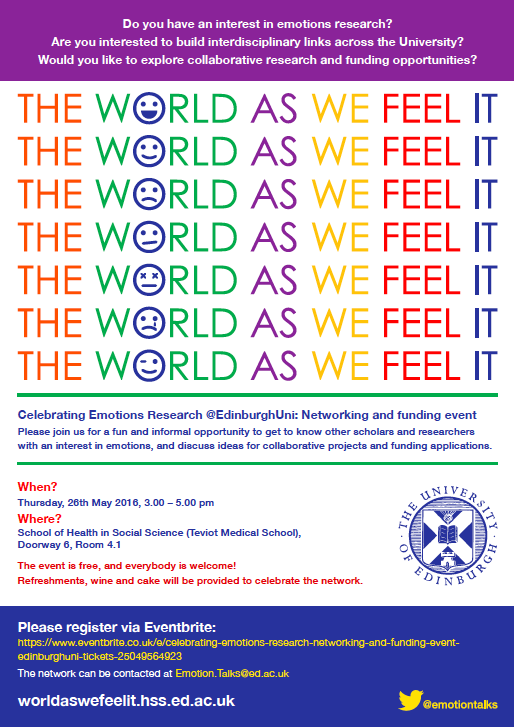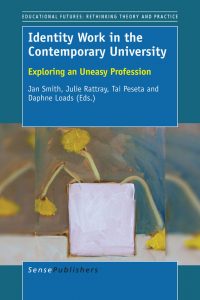As researchers interested in emotions, we are familiar with questions of representation – how (if at all) can language capture emotional lives?
When working with our web-designer to develop the graphics of this website, this challenge was suddenly expanded to include the myriad of possibilities and pitfalls of visually representing emotions.
Particularly in online spaces and on social media, an ever increasing amount of emoticons and emojis allows users to express (perform?) their emotions via shorthand, uniform smileys which reduce emotions to stylized representations. Of course, as many of us have experienced by pondering over texts or emails, the meanings of these signs are far from straightforward or universal. However, they have become an indispensable part of popular culture, both on- and offline, and our header references their capacity to change the emotional connotations of written text in more or less ambiguous ways.
However, the minefield of emotional meanings of design did not stop at our discussion about whether smiley faces are trivializing or ironically referencing emotions, but continued into the choices of colours for the site background.
Both personal and cultural emotional meanings of colours came to light: while ‘white’ may be associated with a blank emotional canvas, we were worried that ‘pink’ may be associated with femininity (and by extension, emotions relegated into the feminine domain as is often the case), ‘red’ with pulsing love or screaming anger, ‘green’ with jealousy etc. Our cultural differences became visible when it became apparent that not all of us had heard about ‘yellow’ being associated with cowardice, or when it turned out that ‘feeling blue’ does not translate literally into other languages.
Of course, the question arises if by considering the emotional connotations of certain colours, we are in fact reinforcing stereotypical assumptions about them.
How have you approached the visual representation of emotions?
What is your emotional experience of looking at this website? 😉
We’d love to hear your thoughts in the comment section.


